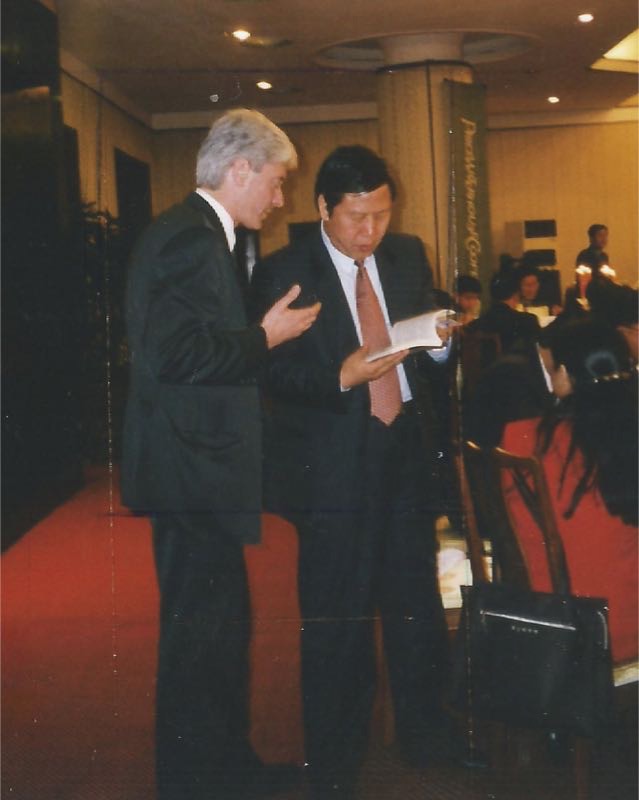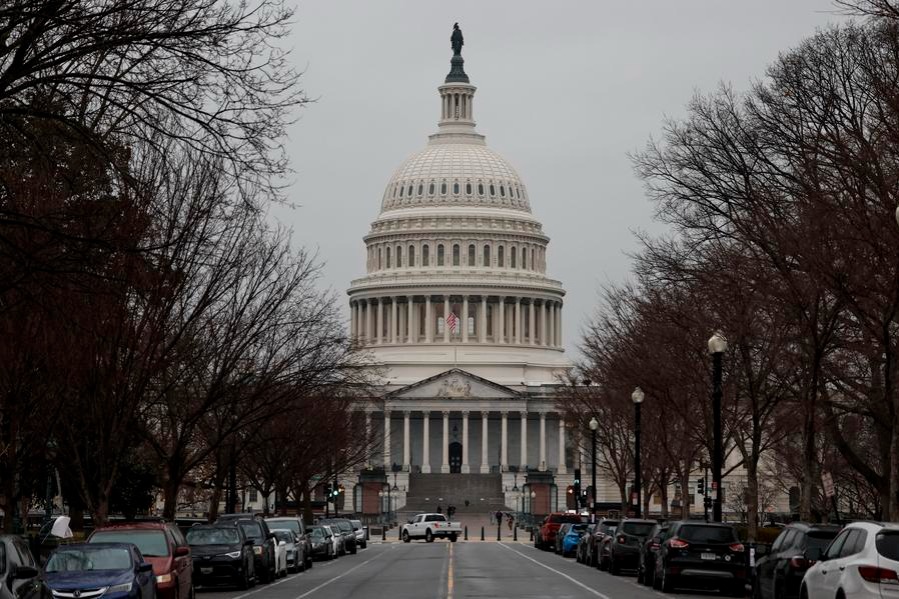'If you can't join the club, create your own club'

China Reform and Opening – Forty Years in Perspective
Reforming an economy without Western theory
Editor's note: Laurence Brahm, first came to China as a fresh university exchange student from the US in 1981 and he has spent much of the past three and a half decades living and working in the country. He has been a lawyer, a writer, and now he is Founding Director of Himalayan Consensus and a Senior International Fellow at the Center for China and Globalization.
He has captured his own story and the nation's journey in China Reform and Opening – Forty Years in Perspective. China Daily is running a series of articles every Thursday starting from May 24 that reveal the changes that have taken place in the country in the past four decades. Keep track of the story by following us.

'If you can't join the club, create your own'
In 1997, when hedge funds hit Asia, markets of the booming “Asian tigers” that were already teetering high, crashed. Capital flowed the other way. Many economies were forced to devalue their currencies and withdraw price and capital controls under the instruction of the IMF.
During the Asian financial crisis of 1997, IMF “medicine” proved itself — not as a panacea for stabilizing regional economies, but the complete opposite. Nations such as Thailand and Indonesia that followed the IMF's voodoo economics were cursed with shock currency devaluation, increased capital flight, economic collapse and social disorder. Extreme economic conditions only aided the rise of local terrorism.
During the Asian financial crisis, China did not follow the IMF's prescription. Premier Zhu Rongji refused to devalue the renminbi. In turn, China's foreign-exchange reserves soared, becoming the second largest in the world. Following its own course, China emerged from the crisis stronger than ever.
Other nations that followed China's example and ignored the IMF, such as Malaysia, not only weathered the crisis but rose from it, stronger than before. The takeaway is that academically derived models and theories often do not work, especially when applied to people and nations whose conditions differ from the assumptions backing those theories.
At the same time in Washington, the Clinton administration repealed the Glass-Steagal Act, a mechanism put in place in 1933 following the Great Depression to mandate separation of commercial and investment banking. From that moment on “market fundamentalism” was unleashed. Capital markets trading debt-leveraged instruments became the source of wealth creation. One decade later in 2008, the effects of Washington's own policies would be felt at home when the subprime lending crisis brought the whole house down. Soon it became a global financial crisis.
In response to the 2008 crisis, Asian nations looked back on the hard-earned experiences of the 1997 Asian financial crisis, and were determined to do things differently. The experiences of China a decade earlier of not devaluing its own currency when the IMF told all the nations of the region to do this, proved correct.
During the 2008 global financial crisis, China stepped up to the plate and called together the ASEAN group of nations, joined by both South Korea and Japan. They collectively convened in northern Thailand, launching what would become known as the Chiang Mai Initiative.
The initiative involved the creation of a multi-lateral currency swap arrangement among these countries in response to the 2008 global financial crisis. Participating nations pooled an initial $120 billion and launched a jointly managed currency stabilization fund on March 21, 2010. The fund later increased to $240 billion. It was seen as the first independent, systematic alternative to the IMF.
In parallel China's outbound investment — investment into hard assets and real things that create jobs — had global impact on both economics and alliances. Throughout the 2008 financial crisis, Chinese outbound investment had a special focus on developing nations and Europe.
In turn, China sought an evolutionary globalization of its currency, commensurate with its increasing responsibility in revitalizing the global economy. In a steady, subtle manner, China began lobbying for the yuan to join the basket of currencies making up Special Drawing Rights, the IMF's reserve asset.
But these efforts were being thwarted from Washington, where there was resentment about China's growing role. In 2010, China rose from sixth to third position for all nations contributing to the IMF. Despite this, on Nov 4 that year the IMF board only agreed to raise China's voting rights from 4 percent — the amount China had held since 1980 — to 6.39 percent. This was a true wake-up call.
Until then, China felt monetary positioning could allow it an equal influence over IMF policies. Past policies had been responsible for much of the global financial chaos and cyclical poverty in underdeveloped nations, as well as some developed ones.
China, together with India, realized only influence over the institution through voting rights would allow these policies to shift from their ideological foundations and toward more pragmatic approaches. There was also a growing realization the nature of these institutions in the post-colonial era was to effectively maintain an upper hand for former colonizing nations over those that remained developing or underdeveloped — largely due to that colonization period.
For decades the nations of the global south had been programmed by Western media and international institutional frameworks to strive toward one day having the privilege of entering that club of elite wealthy nations, by doing all the correct things that might allow such membership to be approved. Many eventually realized such approval may not be forthcoming, as membership might be prejudiced as much by race as anything else.
That meant if nations of the developing south wanted to really develop, they would have to break out from the post-Bretton Woods “new world order,” and do it themselves. That in turn would mean creating their own club — a newer global order of their own.
Please click here to read previous articles.

































